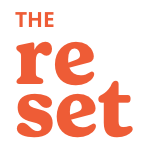Could you be orthorexic? I believe, in the past, I may have been.
If you know me personally, you might know I struggled with mild eating disorders much of my adolescent and adult life. I’ve received counseling and group support, and although I struggled for roughly 10 years, I often sought treatment and definitely resisted spiraling straight down into the eating disorder Hell that so many women I know (and even women I’ve trained) have experienced.
Having children seems to have magically cured many of my obsessive symptoms and I’m happy to say that the last 5 years of my life have been some of the happiest times my stomach and I have enjoyed together. I’m highly unlikely at this stage of awareness to fall back into the starving, binging and medicating that I used to inflict upon myself. But one trend in the world of disordered eating is still on my radar, and it should be on yours as well…
What is orthorexia? A 1997 article in Yoga Journal, by Dr. Steven Bratman, coined the term “orthorexia”.
Read & reflect honestly… do you see yourself at all in this description? Someone you know? Someone you love?
Many of the most unbalanced people I have ever met are those have devoted themselves to healthy eating. In fact, I believe many of them have contracted a novel eating disorder, for which I have coined the name “orthorexia nervosa.” The term uses “ortho,” in its meaning as straight, correct and true, to modify “anorexia nervosa.” Orthorexia nervosa refers to a fixation on eating proper food.
Orthorexia begins innocently enough, as a desire to overcome chronic illness or to improve general health. But because it requires considerable willpower to adopt a diet which differs radically from the food habits of childhood and the surrounding culture, few accomplish the change gracefully. Most must resort to an iron self-discipline bolstered by a hefty sense of superiority over those who eat junk food. Over time, what they eat, how much, and the consequences of dietary indiscretion come to occupy a greater and greater proportion of the orthorexic’s day.
The act of eating pure food begins to carry pseudo-spiritual connotations. As orthorexia progresses, a day filled with sprouts, umeboshi plums and amaranth biscuits comes to feel as holy as one spent serving the poor and homeless. When an orthorexic slips up, (which, depending on the pertinent theory, may involve anything from devouring a single raisin in violation of the law to consuming a gallon of Haagen Daz ice cream and a supreme pizza), he experiences a fall from grace, and must take on numerous acts of penitence. These usually involve ever stricter diets and fasts.
Over time, this “kitchen spirituality” begins to override other sources of meaning. An orthorexic will be plunged into gloom by eating a hot dog, even if his team has just won the world series. Conversely, he can redeem any disappointment by extra efforts at dietary purity.
Orthorexia eventually reaches a point where the sufferer spends most of his time planning, purchasing and eating meals. The orthorexic’s inner life becomes dominated by efforts to resist temptation, self-condemnation for lapses, self-praise for success at complying with the self-chosen regime, and feelings of superiority over others less pure in their dietary habits.
If this sounds like you, consider the fact that your healthy eating habits may be progressing along a disordered spectrum and you may be at real risk of illness and death. Are you:
- unhealthily thin
- obsessed with eating right, even on special occasions or when other “healthy eaters” might break their rules
- devoted excessively to food planning, shopping and preparing
- obsessed with food but don’t really enjoy eating
- concerned with the “pure”, “natural”, “organic”, “raw” or other healthy condition of your foods above all other considerations
Now, there are some who say orthorexia doesn’t exist. But I look around and I SEE IT. I FEEL IT. No matter the motivation, whether for thinness, religion, self-esteem or concern for health, starving the body is not safe. If you see yourself in this description, I urge you to seek help.
Contact the National Eating Disorder Information Centre for support and resources near you.
Email me to discuss your personal story and allow me to help you find support and a healthy, moderate lifestyle.
Be well.
